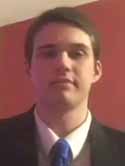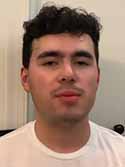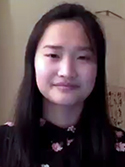If there’s one thing educators can learn from the COVID-19 pandemic—and from families struggling to adjust to various restrictions raised in reaction to the crisis—it is that parents want more schooling options.
This unmistakable takeaway was reflected in the experience of HSLDA’s Online Academy, which witnessed significant growth in the school year now coming to a close.
According to director Jennifer Schlaudt, the academy filled about 3,200 virtual classroom seats in 42 courses—two of which were added for 2020–21. That’s an 18% increase in enrollment over the previous year.
Jennifer attributed some of the academy’s draw to the fact that it is intended to supplement established homeschool programs.
“Our philosophy is to support the parent,” she noted. “We’re like an online co-op. Our mission is to help parents with those tough high school subjects.”
Another distinctive of the academy is that its courses are explicitly taught from a biblical worldview. As Jennifer explained, the aim is not just to convey facts, but to help students develop values that will make them a force for good in society.
This ambitious pedagogy was certainly realized in the three winners of the most recent Academy Student of the Year Scholarship competition.
Each was awarded a one-time college scholarship. They were selected based on videos and essays explaining how the academy has impacted them, as well as presentations about some special achievement in academics, competition, or volunteer service.
All three awardees said what they appreciated most about the courses they took were interactions with teachers and students that imparted insights beyond mere academics.
New Look at Religious Freedom

Graduating homeschool senior Javan Fales recounted how engaging in debates during his Logic & Critical Thinking and Constitutional Law courses helped him grapple with the question of whether the religious freedom guaranteed by the Constitution conflicts with the biblical command that all people worship the one true God.
He credited his instructor Dan Beasley, who is also an HSLDA attorney, with broadening his understanding of the legal and philosophical underpinnings that guard this vital liberty.
Ultimately, said Javan, “it’s individuals that have rights.” And each individual must make a choice regarding who or what he will worship. And since God grants the power of choice, he added, “God himself grants individuals religious
freedom.”
Javan plans to continue his research into the moral foundations of the Constitution when he enrolls in Covenant College this fall.
He has already taken some community college courses as part of his homeschool program, though he remarked that some of these “were less difficult” than academy classes.
Javan hopes eventually to study law and to perhaps run for public office.
Mixing Art and Business

Bradley Babilino, also a homeschool senior, took Macroeconomics and Microeconomics with the academy, which he said helped him comprehend broader patterns in the world of commerce as well as the importance of making good decisions in personal finance.
He added that these lessons will have practical applications as he continues with various entrepreneurial projects.
Last year he began composing background music and posting it on social media for visitors to peruse. His channel garnered more than 140,000 plays, including one by a producer who purchased one of Bradley’s beats for an original song.
Earning money from a creative project, said Bradley, “was a crazy, awesome feeling.”
He plans to attend Christopher Newport University this fall, where he hopes to continue studies in business and finance.
Life Lesson from Literature

Music also plays an important part in the life of homeschool senior Elizabeth Cheng, an accomplished violin student.
However, in another area of her studies where she felt she struggled somewhat, the academy classes benefited her tremendously.
“I didn’t read and write as much as some other high schoolers,” Elizabeth said.
She signed up for academy classes that she hoped would remedy this shortcoming, but she added that “at the very beginning of each course, [she] was intimidated by the workload.”
That changed, thanks in good measure to her teachers.
“They were so personal,” Elizabeth recalled. “The way they taught was very nurturing.”
Elizabeth said she also found herself very engaged by the interaction among students that her teachers fostered.
It was through these discussions, she explained, that in her British Literature & Writing class, she came to see how great prose can help readers better comprehend the human condition.
In talking over the four anthropomorphized animals who comprise the main characters in Kenneth Grahame’s The Wind in the Willows, for example, Elizabeth said she came to admire the way Rat cared for his friends—including one who constantly
made mistakes
“That helped me to analyze my own friendships and ask if I’m really caring for them,” recounted Elizabeth.
Included among those friendships are her three older sisters, all of whom play instruments—and who helped inspire Elizabeth to take up the violin.
“I’ve been playing since I was four years old,” she said. When she was even younger, Elizabeth recalled, she emulated her sisters by pretending to make violin music on a pair of chopsticks.
For the past three years, she has been studying music at Juilliard Pre-College.
This fall she plans to enroll in Patrick Henry College, where she intends to major in environmental science and stewardship and minor in music.

